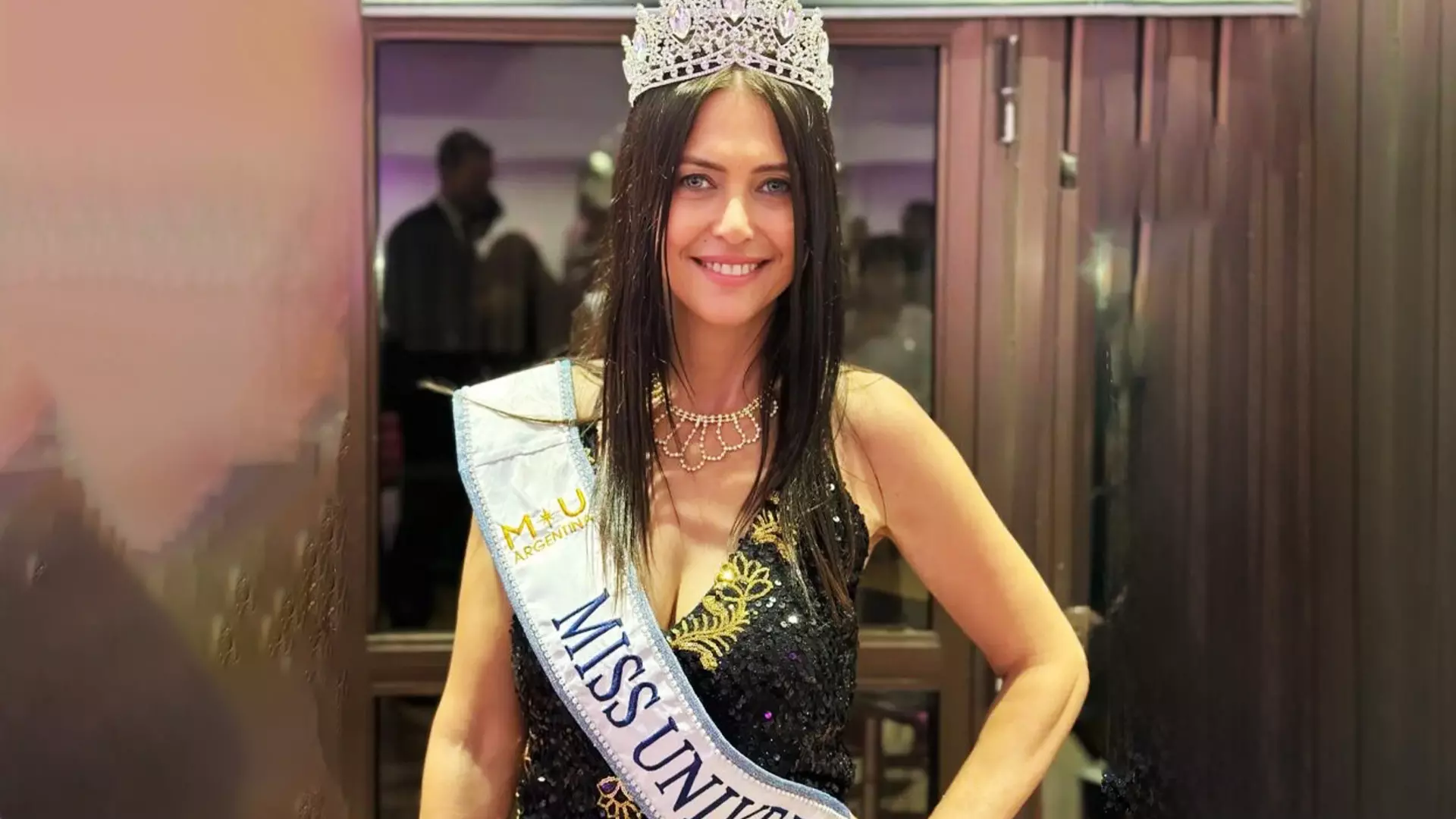
- Home
- India
- World
- Premium
- THE FEDERAL SPECIAL
- Analysis
- States
- Perspective
- Videos
- Sports
- Education
- Entertainment
- Elections
- Features
- Health
- Business
- Series
- In memoriam: Sheikh Mujibur Rahman
- Bishnoi's Men
- NEET TANGLE
- Economy Series
- Earth Day
- Kashmir’s Frozen Turbulence
- India@75
- The legend of Ramjanmabhoomi
- Liberalisation@30
- How to tame a dragon
- Celebrating biodiversity
- Farm Matters
- 50 days of solitude
- Bringing Migrants Home
- Budget 2020
- Jharkhand Votes
- The Federal Investigates
- The Federal Impact
- Vanishing Sand
- Gandhi @ 150
- Andhra Today
- Field report
- Operation Gulmarg
- Pandemic @1 Mn in India
- The Federal Year-End
- The Zero Year
- Science
- Brand studio
- Newsletter
- Elections 2024
- Events
- Home
- IndiaIndia
- World
- Analysis
- StatesStates
- PerspectivePerspective
- VideosVideos
- Sports
- Education
- Entertainment
- ElectionsElections
- Features
- Health
- BusinessBusiness
- Premium
- Loading...
Premium - Events

When a beauty queen is crowned at 60, one wonders if older women are being targeted as a marketing segment for skincare and cosmetic enhancements
It was bound to happen this year. When current Miss Universe (and oldest-yet winner of the pageant) R’Bonney Gabriel announced at the New York Fashion Week 2023 that the contest and its associated pageants were doing away with age limits, a senior citizen had to win at least one of those contests to capitalise on the audience’s excitement.
Last week, 60-year-old lawyer and journalist Alejandra Marisa Rodríguez won the title of Miss Universe Buenos Aires, the first step towards Miss Universe Argentina, winning which will enable her to compete in Miss Universe.
The 2024 edition already has a 47-year-old participant, Haidy Cruz, who will represent the Dominican Republic.
Breaking stereotypes
Since the Miss Universe pageant was bought in 2022 by JKN Global Group, owned by transgender rights campaigner Anne Jakapong Jakrajutatip, the organisation has made a series of rule changes. Last year, the ban on women who were or had been married was removed. Mothers would also be allowed to compete.
Since its inception in 1952, not only were these women excluded, but victors were also required to avoid marriage and/or pregnancy while serving as Miss Universe.
But, even when the pageant was owned by Donald Trump – whom no one could possibly accuse of supporting diversity and inclusivity – it had broken some stereotypes.
In 2018, trans woman Angela Ponce won the title of Miss Universe Spain, and in 2023, the feat was repeated by Miss Universe Netherlands, Rikkie Valerie Kolle. Unlike many beauty pageants, Miss Universe does not have a no-surgery rule that would automatically exclude transgender participants.
'Beauty with brains'
For decades now, global beauty pageants have done their best to promote themselves as championing “beauty with brains” and “beauty with a purpose”, even while proving the opposite. Priyanka Chopra infamously won the Miss World title after 'resurrecting' Mother Teresa, in an answer that she almost recited like a school child at an elocution contest. (Asked who she thought was "the most successful woman living today", Chopra said it was Mother Teresa. In fact, Mother Teresa had been dead three years then.)
The Miss Universe organisation requires winners to spend a year in New York, promoting sponsors whose idea of sustainability is using recyclable packaging.
The 1990s saw a number of Indian women win the two coveted titles, Miss Universe and Miss World – Sushmita Sen and Aishwarya Rai had twin wins in 1994, as did Lara Dutta and Priyanka Chopra in 2000. Diana Hayden and Yukta Mookhey won the Miss World title in 1997 and 1999 respectively. More importantly, India was placed in the Miss Universe semi-finals continuously from 1992 to 2002.
Beauty market foray
This coincided with the penetration of foreign brands into the beauty market. Revlon arrived in 1995, followed by L’Oreal, M.A.C. and Clinique.
The beauty industry in India, estimated at ₹3,000 crore in the late 1990s, has now grown to ₹100,000 crore. Under these circumstances, it’s hard not to be cynical about the ulterior motives of beauty pageants and their sponsors.
In recent years, actors and models have made a point of contrasting their made-up faces with their natural faces. While this is seen as fighting impossible standards of beauty and the body and face dysmorphia these standards precipitate in teenage girls and young women, it also subtly highlights the power of makeup.
The global beauty and personal care market is projected to reach a value of over $600 billion in 2026, a 20 per cent growth on its figure of $500 billion in 2022.
In a study conducted between 2011 and 2024, it was found that skincare dominated the beauty industry, making up nearly 41 per cent in 2023, far ahead of haircare and cosmetics. Skincare products are typically purchased by older women.
Fifty is the new forty
The idea of “growing grey gracefully” has been replaced by the idea of never “looking one’s age”. Fifty is the new forty, we like to say.
It is one thing for Cher or Madonna, with their bank accounts, to look the way they do at their ages. But when one’s friends and neighbours start looking 50 at 70, one feels the pressure to look young.
Fitness is no longer the domain of younger people. And cosmetic surgery is no longer the domain of celebrities.
When a beauty queen is crowned at 60, one wonders whether older women are being particularly targeted as a marketing segment for skincare and other cosmetic enhancements.
A new paradigm?
Is Rodríguez’s victory truly representative of a “new paradigm”, where traditional ideas of physical beauty are superseded by confidence, force of personality, and career success?
Is it a challenge to ageism? In that case, what exactly does “beauty pageant” mean? Have we moved on to “inner beauty”, or are we simply re-examining our ideas of beauty?
If it is the former case, why do we still have a swimsuit round (although the Miss Universe organisation has reworded this as a “swimsuit or athletic wear” round), during which the vital stats and body measurements of the contestants are listed?
The official website claims this is to demonstrate the contestant’s “dedication to a healthy lifestyle”, but in an era of plus-size models, can we really separate swimsuit rounds from sexism?
Parallel trend in film industry
Interestingly, there is a parallel – and quite organic – trend in the film industry. Both in India and internationally, most A-listers are at least in their late 30s, if not older.
The Forbes list of highest-paid actors for 2023 includes two women in the top ten – Margot Robbie (33) and Jennifer Aniston (55). Save for Robbie, all the top-earning female leads are over 40.
In India too, with the exception of Alia Bhatt, the most sought-after female leads are in their 40s or close. In Mani Ratnam’s Ponniyin Selvan, the 50-year-old Aishwarya Rai Bachchan played a character who is 22 years old. And nearly all these women, including Alia Bhatt, are mothers.
In an earlier time, marriage was the death knell for female leads. If they survived marriage, motherhood would certainly put paid to their careers.
Greater triumph in films
It’s hard to pinpoint when the trend changed. Aishwarya Rai and Kareena Kapoor were at the peak of their careers when they got married, and both women continued to act. They went on to birth children between film projects.
The only female lead who seemed to retire after marriage was Nazriya Nazim, but the retirement ended up being a four-year-long break. She returned, albeit not as a romantic lead, for Koode in 2018, and then acted as her real-life husband’s love interest in Trance (2019). In 2022, though, she starred in the Telugu film Ante Sundaraniki, with Nani.
The popular theory for why actresses retired after marriage was that the audience liked to imagine the female leads were being played by virgin women. And that, although they knew they were watching works of fiction, they did not like to see actors romance “another man’s wife”.
At some point, the hypocrisy began to peter out.
And when the film industry, so much more popular than the pageant industry, has already overcome ageism, is it really of any significance that “mature women”– as the politically correct phrasing goes – are beating younger contestants en route to the Miss Universe title, except as an astute marketing strategy for beauty products?
(The Federal seeks to present views and opinions from all sides of the spectrum. The information, ideas or opinions in the articles are of the author and do not reflect the views of The Federal.)


